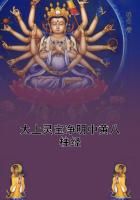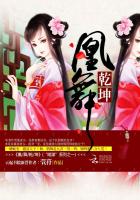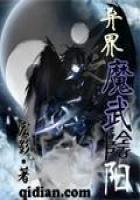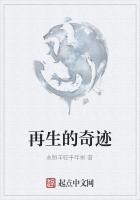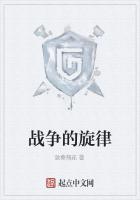In late 2009, she was part of a team that published the country’s first research reportinto the lives of returned female migrant workers. For two years, they held one-ononeinterviews with hundreds of women in rural counties of Anhui, Jiangxi and Henanprovinces, as well as in Chongqing municipality and the Ningxia Hui autonomous region.
According to the final report, chief among the respondents’ complaints were poorsanitations conditions (some said they have to travel long distances every week just to takea shower) and boredom.
“The experiences migrant women are having in the ‘outside world’ are upgrading theirlifestyles and civilization standards,” said Meng.
Her team also discovered a large proportion are frustrated with not being able to usethe skills they developed in the cities, either because of a lack of funds or suitable workingenvironments back home.
It is hard for returnees “to find opportunities to make full use of their competencies”,reads the final report. “They are longing for the government to provide a suitable platformfor them.”
Independent thinking
For Yang, who moved to SouthChina’s prosperous Guangdongprovince at the age of 15, the biggestadjustment after returning to Nantahas come in having to rely on herhusband for money.
Although it is traditional for ruralmen to feed and clothe their families,Yang argues that no woman “between20 and 40 should have to ask a manfor money”.
She started her migrant lifeearning just 300 yuan a month as astorehouse manager for an electronicsf i rm in Zhongshan. When thecompany went bankrupt in 1997,she found work in a restaurant inShenzhen, arguably the Pearl RiverDelta’s most successful city and a topdestination for the migrant workforce.
“Working in the restaurant washard,” recalled the mother, who quit education before graduating junior middle school.
“My job was prepping food for the cooks, but everything was in English so it was missionimpossible for me.”
She lasted just one week and spent the next two months relying on any temporarywork she could find before returning to Zhongshan for a job at a hardware factory.
“By then, I was making more than 1,000 yuan a month and life was getting easier,”
said Yang, who in her spare time would play games, go skating or visit karaoke bars withfriends.
“At weekends, we’d take a 15-minute bus ride to a shop at a nearby clothing market,”
she said. “When I was in Guangdong, my friends and I always split the bill when we wentout. I can’t remember where I spent all my money but it was hard to save any.”
However, like many returnees, Yang, whose husband runs a small feed business, saidshe understands that compromise is an important part of resettling in the countryside.
“If I wasn’t taking care of the children, I would never depend on a man financially,”
she added, patting her crying son on the back. “The twins have been my sole source ofhappiness since I returned home.”
China’s migrant population reached roughly 201 million in 2008, according tostatistics released in 2010 by the National Population and Family Planning Commission.
Yet, Meng said many of them, particularly women, are returning to the countrysidebecause of the hukou (permanent residency) system, which strictly separates rural andurban residents.
“Migrant workers feel rejected by the cities’ employment, housing, education andsocial security systems, which make it hard for them to settle where they work,” she said.
“There’s a big gulf between the flow and migration for China’s rural population. It may beeasy to flow but it’s extremely hard to migrate.”
Meng’s study for the Chinese Academy of Social Sciences concluded that tracing themovement of female migrant workers results in “an M cycle”.
“The ‘M’ shows the two peaks of when rural women flow to the cities,” said projectleader Meng, who explained the first peak is when women leave their villages at age 17 or18 and return home to get married or have a child at about 20 or 22.
“Most move away again at 25 - the second peak - and will then return for good atabout 35,” she added.
Zhou Qiuhua, 24, who lives near Yang in Nanta, fits the model almost perfectly. Shereturned home in 2009 from Dongguan, another manufacturing hub in Guangdong, togive birth to her son.
“It wasn’t a realistic option to have a baby in Dongguan,” she said. “I could only havea three-month vacation and nobody there could help me with the delivery or taking care ofthe baby.”
Unlike Yang, however, Zhou plans to go back to the city to work when her son is 12months old. “I’ll come back when he turns 3 and stay with him as he goes to school,” shesaid.
Experts say having a child is the No 1 reason why most women return to their villages.
With no social insurance coverage or family to care for them, most rural employees areforced to quit the factories once they get pregnant.
“I think the problem has caught the attention of policymakers and the situation ischanging, albeit very slowly,” said Meng.
In her team’s final report, it reads: “As the … barriers gradually collapse andurbanization moves forward, a nationwide integrated social security system will be built …and the number of migrant workers returning to the countryside because of (poor) socialsecurity will shrink.”
New sensibilities
In July 2009, migrant population management officials at the National Populationand Family Planning Commission surveyed 47,461 workers with urban and rural hukou.
It showed that 60 percent of the rural migrants were concentrated in low-pay, high-riskindustries like construction, manufacturing and catering, while for urban residents thepercentage was 53.
Roughly 64 percent of respondents with rural hukou, however, said they will spend “thelater part of life” in their native villages.
“Migrant workers devote the best times (of their lives) to the development of citiesbut they’re excluded from enjoying its welfare,” said Meng. “They’re the cost of theurbanization process.

![[欧洲]中世纪教育思潮与教育论著选读(中)](https://cdn.zi5.net/images/book/2020/02/19/141208000.jpg)




